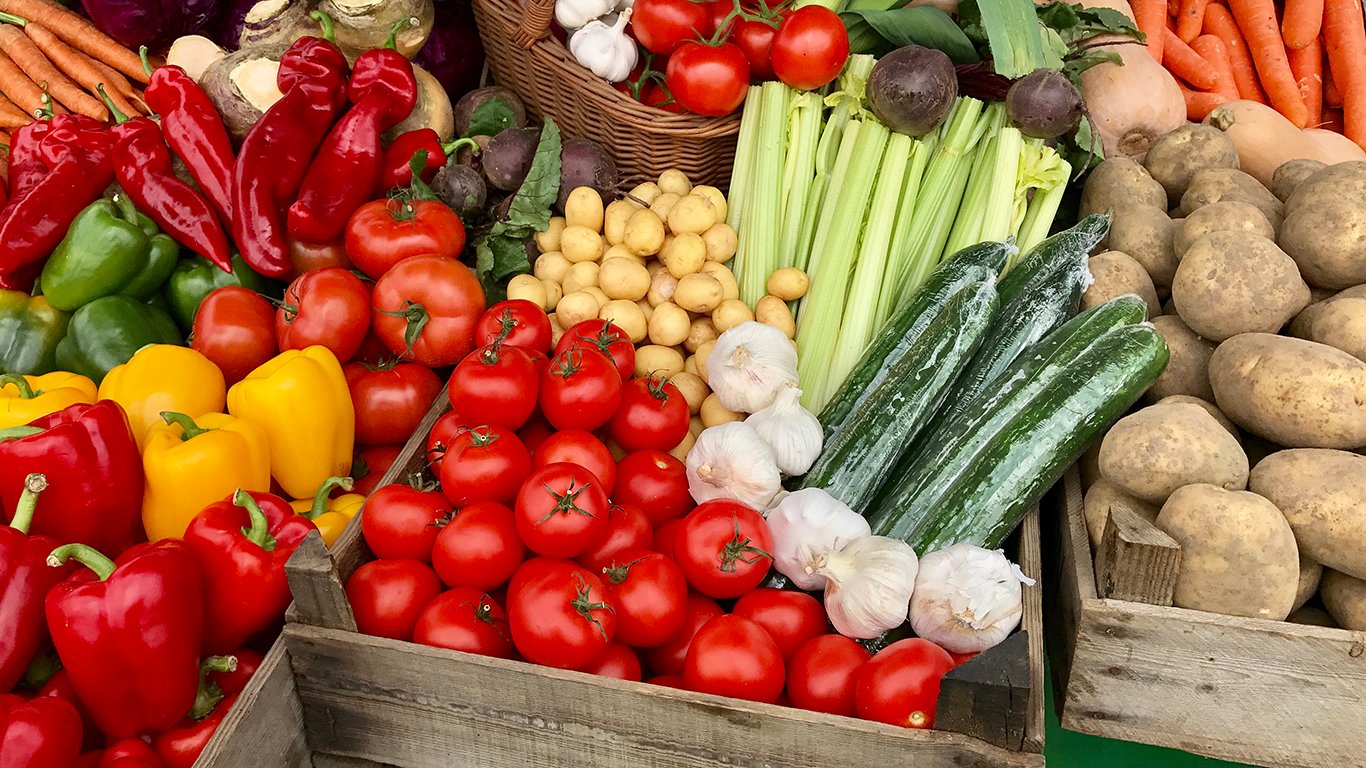

Mechanical refrigeration — as opposed to earlier methods of cooling things with snow or natural ice — changed the world. Initially employed on a large scale mostly by the brewing and meatpacking concerns, it vastly improved food safety, permitted the transcontinental transport of fresh foodstuffs, and was a tremendous boon to many industries, including metal-working, textile production, oil refining, munitions, and the hospitality business.
The household refrigerator, which first appeared in the early 20th century, had equal importance in American life. As Bern Nagengast, co-author of “Heat and Cold: Mastering the Great Indoors,” told History Magazine, “[It] changed the way people ate and socially affected the household.” The electric refrigerator is one of 50 things you never knew were invented by women.
In 1921, 5,000 refrigerators were manufactured in the U.S. By 1921, that number was one million. By 1950, more than 80 percent of American farms and 90% of urban homes had a refrigerator. It would be hard to find an abode of any kind across the nation today that lacks one.
As useful — essential — as refrigerators are in our daily lives, it’s important to be aware that not everything should be stuck into the fridge. Some kinds of food — and especially some varieties of fruits and vegetables — suffer in the cold or in the humid atmosphere that regularly used refrigerators maintain.
Click here for 10 fruits and vegetables you should never put in the fridge.
Leaving foods out in warm air, where they can spoil rapidly and often become toxic with bacteria, is dangerous, and many foods spoil faster than you’d think.
On the other hand, putting things in the refrigerator that shouldn’t really go there rarely, if ever, has truly dramatic effects on them. But it can change the texture and appearance of some fruits and vegetables, and rob them of some flavor. That’s why it’s good to know which ones to keep at room temperature instead.
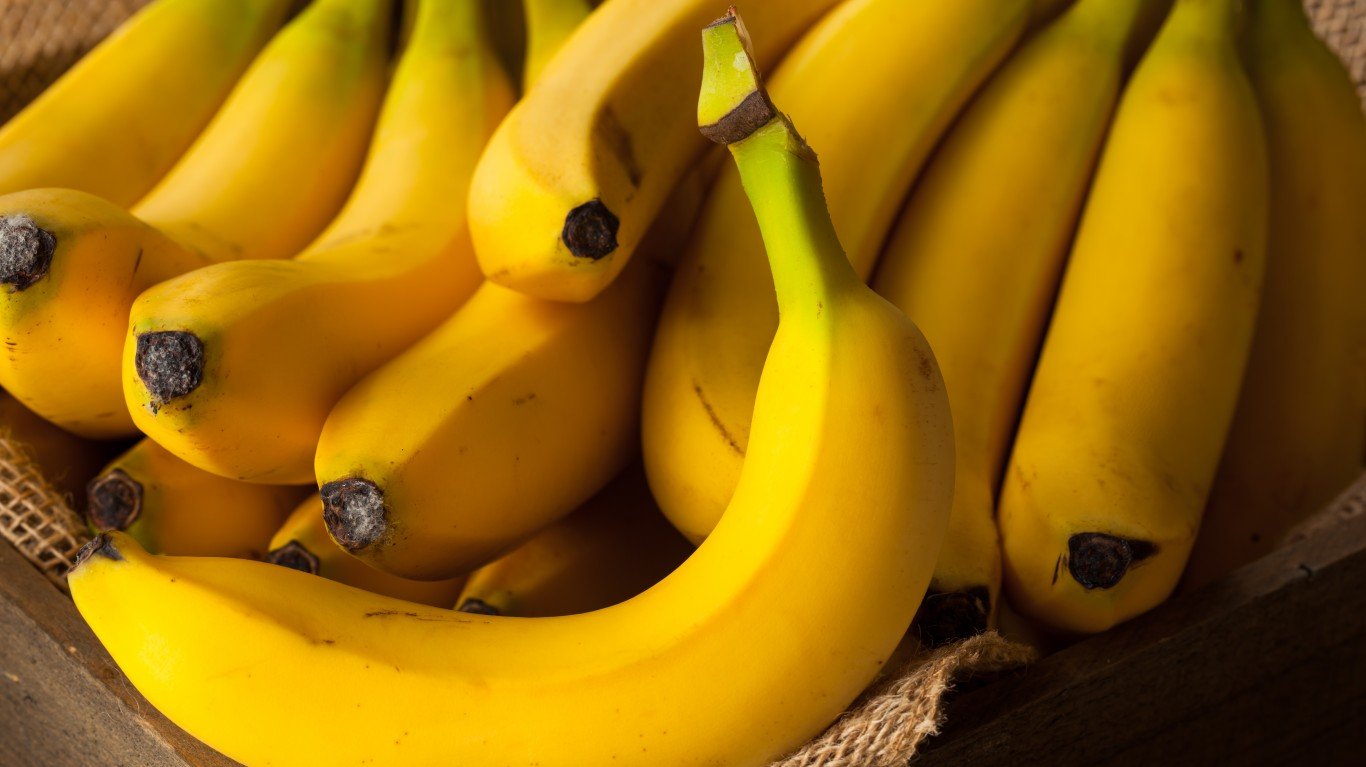
1. Bananas
It makes sense that produce from warm climates doesn’t much like the cold. In the case of bananas, the problem is twofold: First, the fruit’s cell walls have no natural defense against the cold, so they break down and start reacting with the banana’s nutrients, turning things black and mushy. Second, if the banana isn’t fully ripened, the cold will stop it from ever getting to that state.
[in-text-ad]
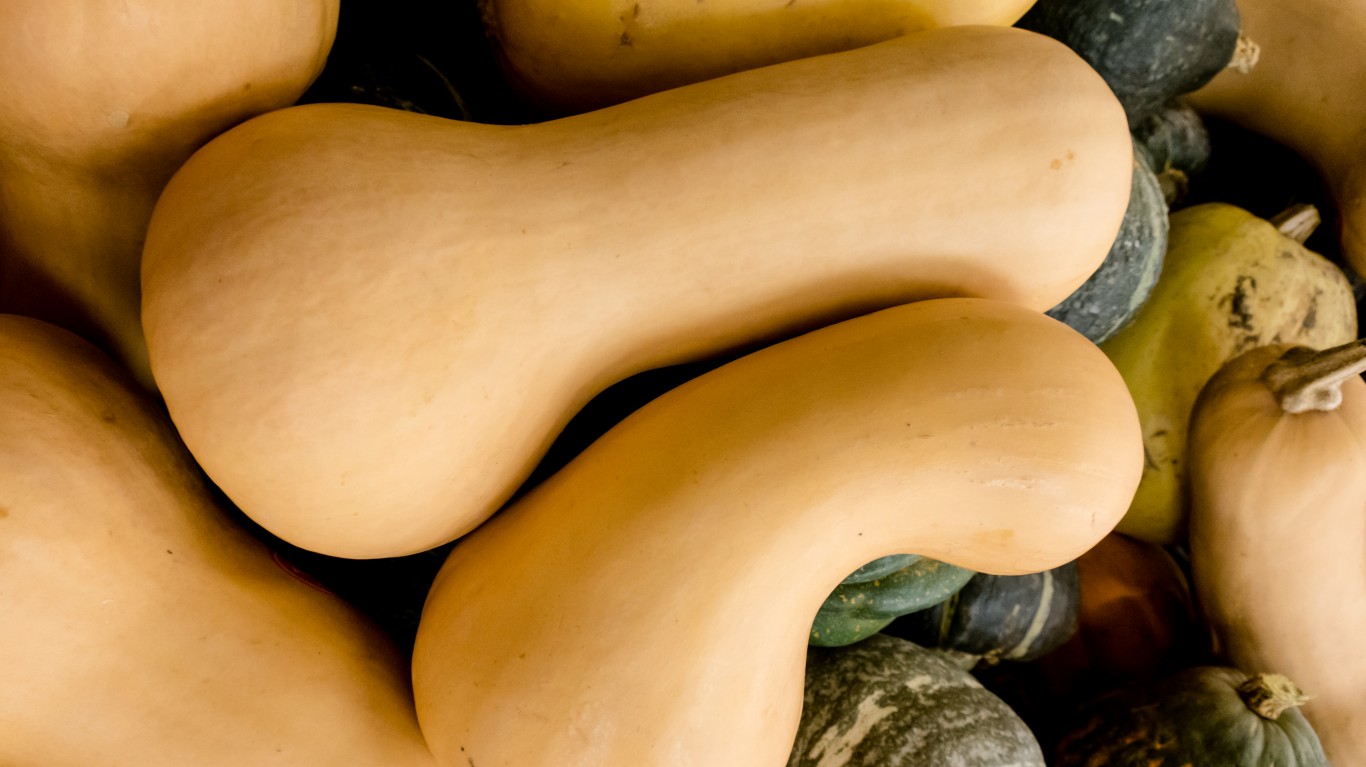
2. Butternut squash
While this flavorful winter squash should be refrigerated once it’s cut up into pieces, the whole vegetable keeps very well in a cool but not cold place. The humidity in the refrigerator might hasten spoilage. Another reason not to put it in the fridge: It’s big and takes up a lot of room.
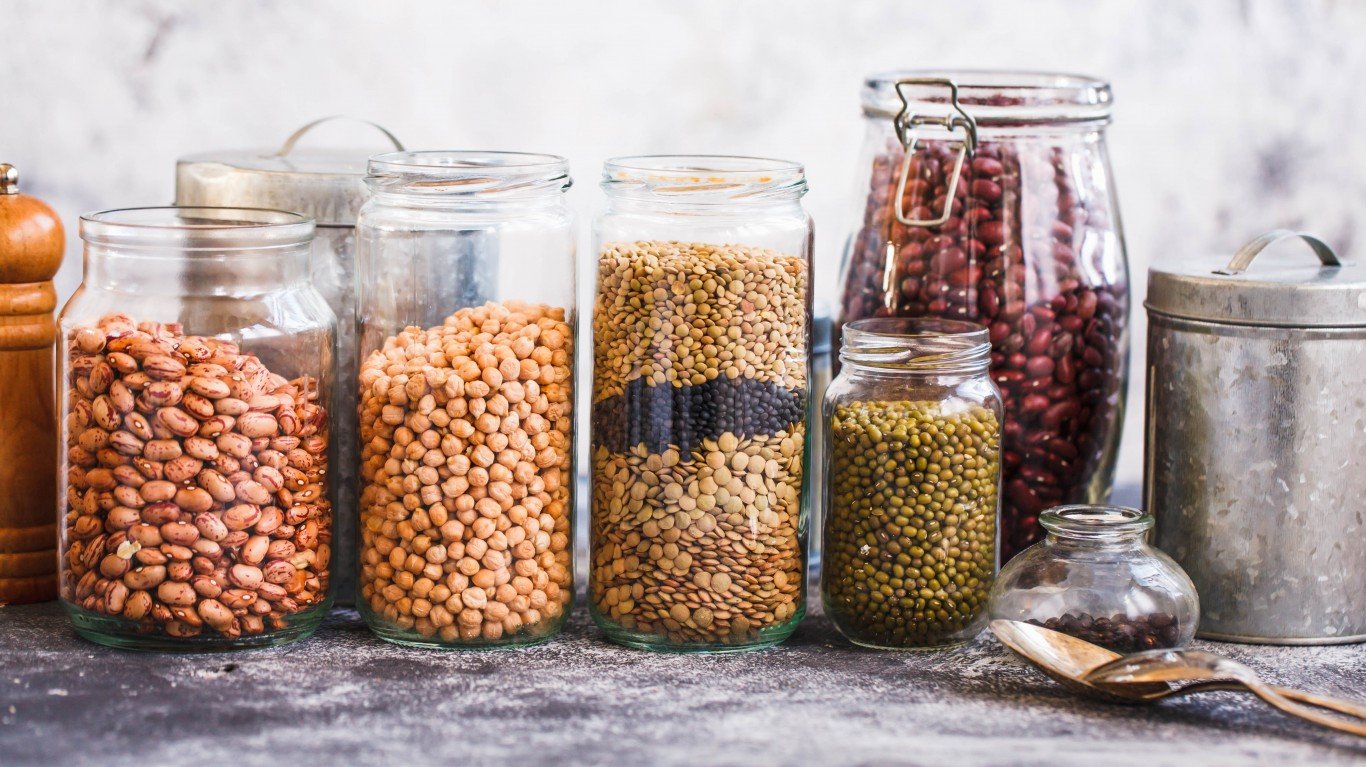
3. Dried beans
Dried beans will keep for years (up to three decades, according to some studies) if stored in well-sealed containers in a cool, dark place. Inside a humid refrigerator, they will absorb water and spoil.
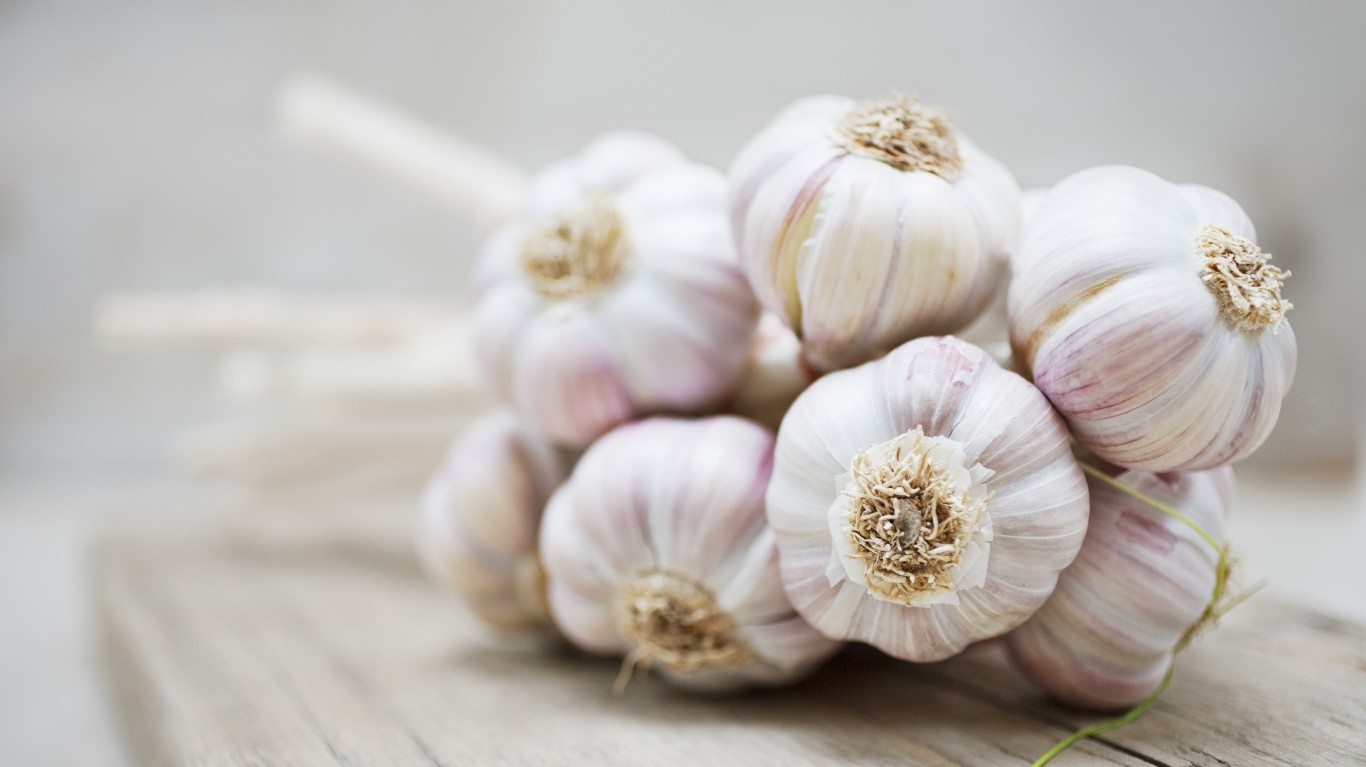
4. Garlic
Refrigerators that are in regular use are humid places, and the moisture can make garlic go moldy. Also, garlic odors are readily transmitted to other foods and liquids within a closed space. Do you really want garlicky milk or leftover pie?
[in-text-ad-2]
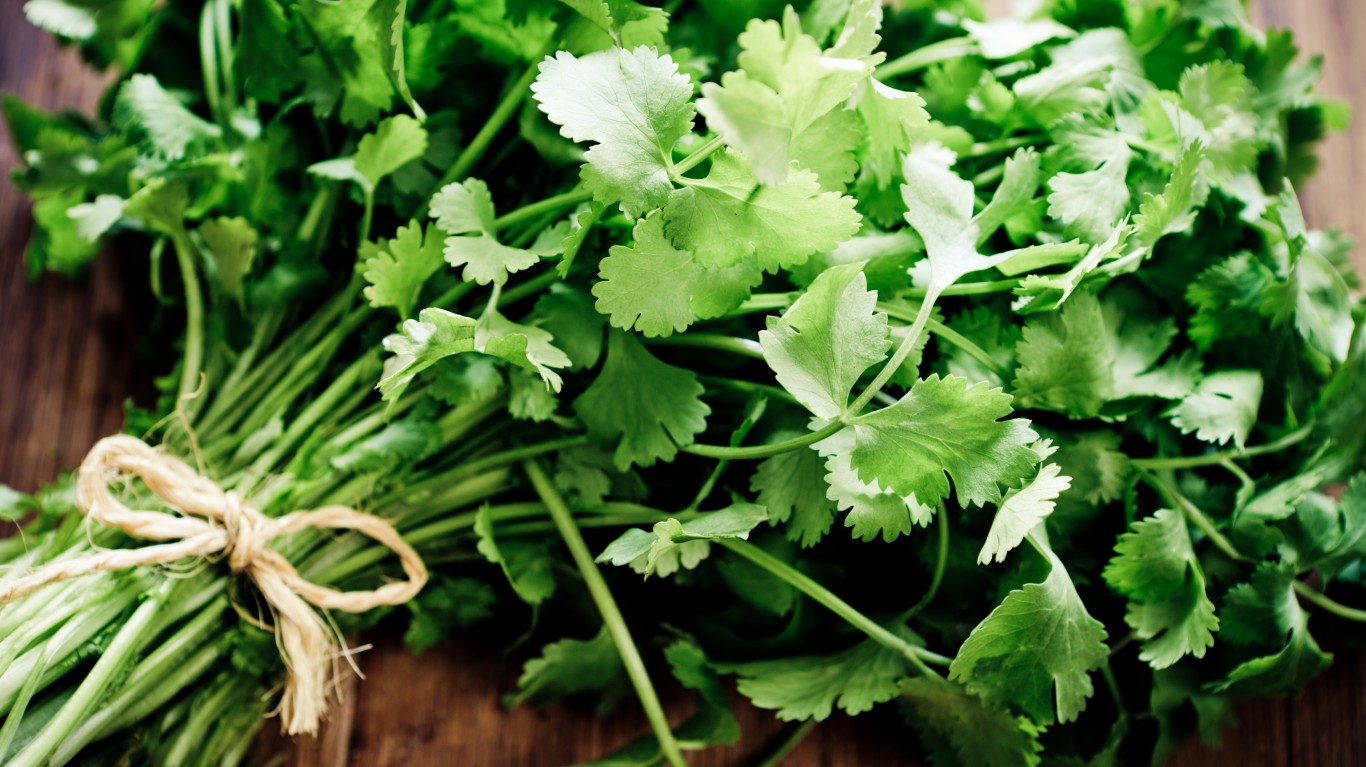
5. Leafy herbs
Basil and other leafy herbs, such as cilantro, parsley, or mint, will wilt and/or turn dark faster than usual, and may absorb other food odors. Treat these herbs as if they were flowers, trimming their ends and sticking them in jars of cool water, then set them on a shelf or counter at room temperature.

6. Melon
Whole melons, like cantaloupe, honeydew, and watermelon, should be stored at room temperature for the most flavor. USDA studies have shown that they may retain their antioxidants more efficiently if they’re not chilled. They should go into the refrigerator only if they’re cut up.
[in-text-ad]
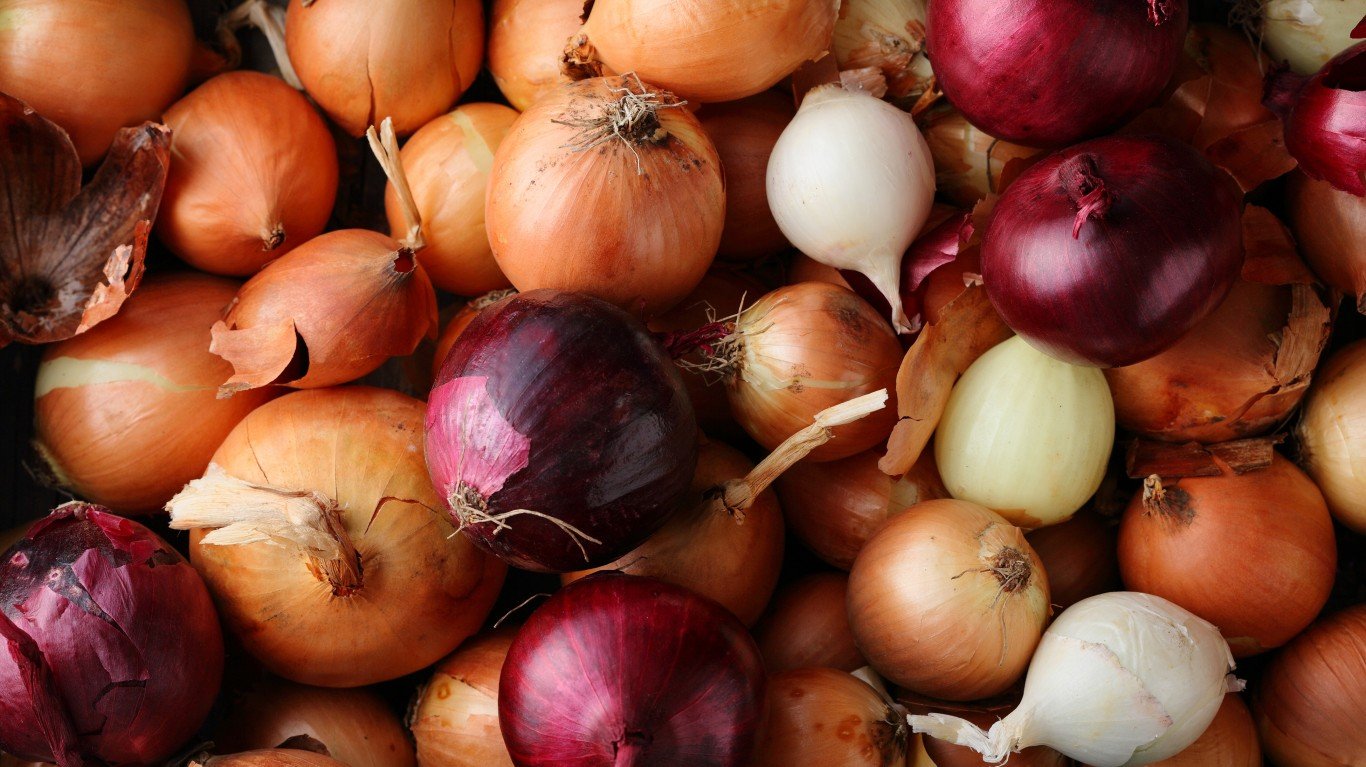
7. Onions
According to the National Onion Association, the lack of ventilation in a refrigerator crisper drawer will reduce the shelf life of these essential bulbs. They should never be stored in plastic bags, either. They like a cool, dry, dark place to rest, with plenty of air movement. Only whole peeled or cut-up onions should be refrigerated.
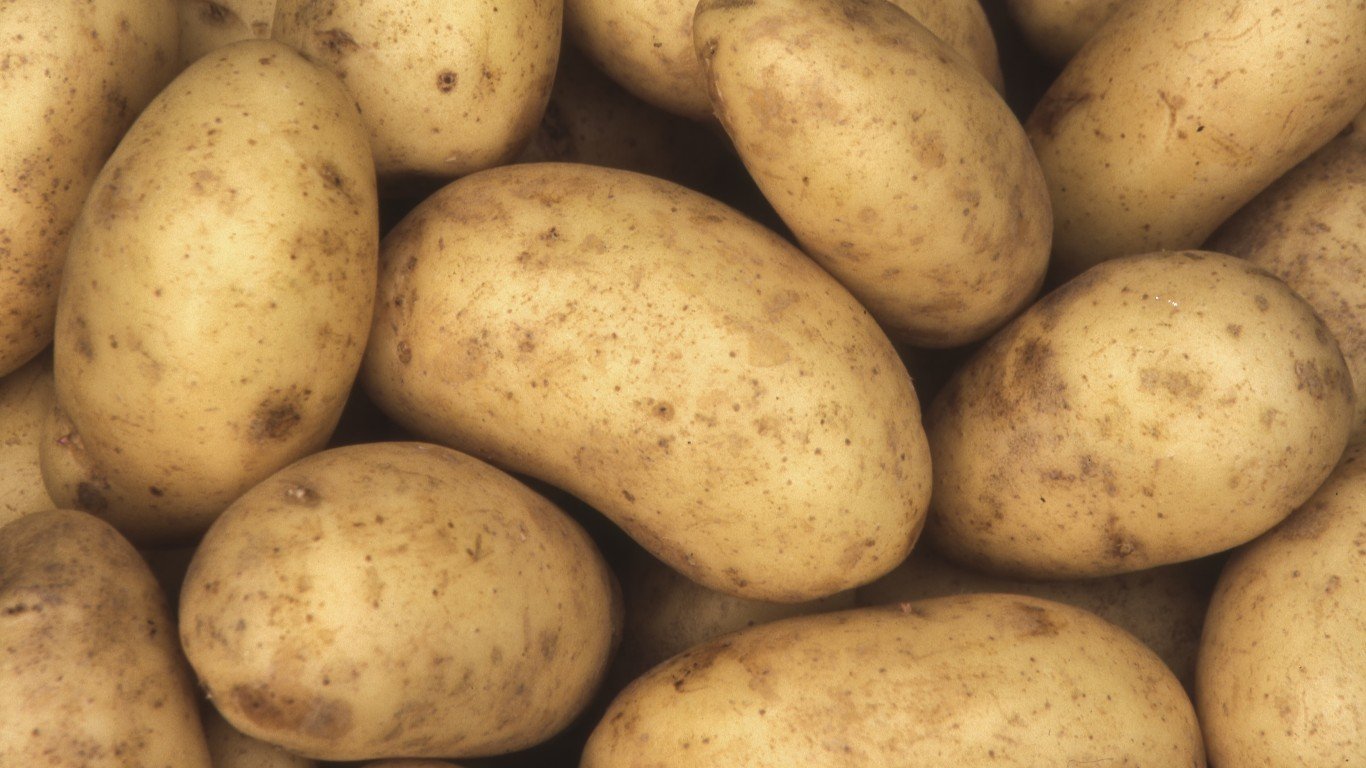
8. Potatoes
Though like onions spuds should be stashed somewhere cool, dry, and dark (to avoid encouraging them to sprout or develop mold), the refrigerator is the wrong place for them. Cold temperatures break down their starch, converting it to sugar, which makes them disconcertingly sweet and may give them a gritty or grainy texture.

9. Sweet potatoes
When sweet potatoes are refrigerated, their cell structure breaks down and they remain hard in the middle, and harder to cook. They much prefer cool room temperature, away from the light.
[in-text-ad-2]

10. Tomatoes
Volatile compounds that help give tomatoes their attractively green and grassy character are broken down at temperatures below 39ºF (35ºF is considered the ideal refrigerator temperature), and storing them below 50ºF may lead to premature softening and scar the surface.
Sponsored: Want to Retire Early? Here’s a Great First Step
Want retirement to come a few years earlier than you’d planned? Or are you ready to retire now, but want an extra set of eyes on your finances?
Now you can speak with up to 3 financial experts in your area for FREE. By simply clicking here you can begin to match with financial professionals who can help you build your plan to retire early. And the best part? The first conversation with them is free.
Click here to match with up to 3 financial pros who would be excited to help you make financial decisions.
Thank you for reading! Have some feedback for us?
Contact the 24/7 Wall St. editorial team.

